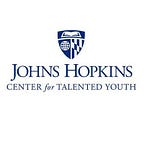Three things you need to know about AI in the K-12 classroom
ChatGPT is smart and getting smarter all the time. In the year since it was introduced, the large language model has been embraced by college professors for its ability to tailor instruction, earned a passing score on sections of the bar exam, and even completed a first year at Harvard University with a 3.34 GPA.
If you think ChatGPT and other AI tools are far away from being part of your child’s K-12 education, think again. In fact, they may have already arrived. Some K-12 school districts have elected to restrict or ban the use of AI at school due to concerns that the technology will weaken students’ critical thinking skills and encourage them to cheat or plagiarize. Meanwhile in other classrooms, educators are exploring how they can creatively use ChatGPT to engage students by using it to generate raps about trigonometry, translate Shakespeare into modern English, and generate materials for different reading levels.
“Some parents may think of AI only as ‘that thing kids can use to cheat on their homework,” said Kimberley Chandler, PhD, director of curriculum at the Johns Hopkins Center for Talented Youth and a principal investigator on a new project investigating what happens when K-12 students are taught to use AI to ethically support their learning. “It’s so much more than that. AI is a powerful tool that can help guide inquiry in the classroom.”
Here are three things parents of K-12 kids should know about AI in the classroom:
- Machine learning is here to stay.
In the 16 years since Apple introduced the first iPhone, smartphones have revolutionized how we communicate. AI is poised to have that same kind of impact. “Using AI in the K-12 classroom is a new way to think about education that seems far-fetched, and yet it is so attainable,” said Amy Shelton, PhD, executive director of CTY. “We could see a real transformation away from traditional rote memorization and primary instruction so that we can get to synthesis and integration of information faster.”
2. Educators don’t have all the answers about AI yet, but they’re learning.
AI is a powerful tool, one that is constantly evolving. Educators at all levels are engaged in learning more about how they can use it effectively in their work to engage and educate students. “We’re just at the beginning of this journey,” said Robert Arena, senior director of innovation and continuous improvement at CTY. “We want our students and educators to understand how to use new tools effectively and in a manner that doesn’t replace what their roles are as learners and teachers, but rather facilitates the teaching and learning process in a way that supports these unique roles. Just as the calculator did not replace the math teacher or the student, nor will AI.”
The CTY project explores academically advanced students’ and educators’ use of large-language models in an online CTY classroom. For the project, funded by a $75,000 Johns Hopkins Digital Education and Learning Technology Acceleration grant, CTY and other Johns Hopkins researchers will customize an AI large language model to effectively serve as a “tutor on the side” to help a student’s learning process during the course. Principal investigators, which include Daniel Khashabi, PhD, and Benjamin van Durme, PhD, of JHU’s Whiting School of Engineering, and Jennifer Morrison, PhD, of JHU’s School of Education, will also determine how teachers can best understand and make use of this technology.
3. AI provides opportunities to teach us about more than technology.
Students need to learn about AI and about its strengths and weaknesses because these tools will be ubiquitous by the time they are adults, Arena said. Learning about AI presents opportunities for families to discuss the ethics around using it and exploring how it can succeed and fail in different applications. “We want to help students become better learners and better explorers of knowledge who can take advantage of the best technology to encourage and sustain their curiosity.”
